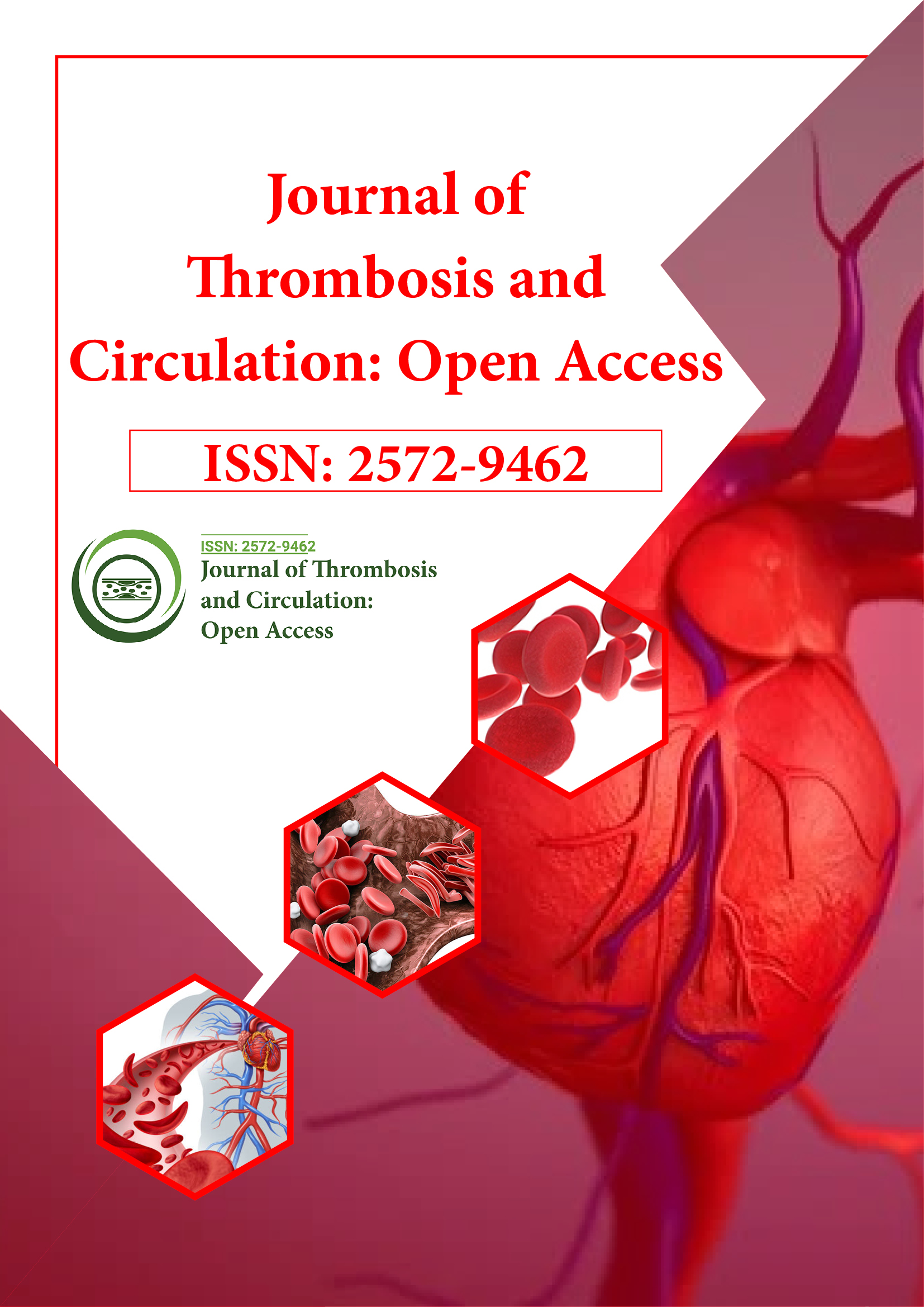Indexed In
- RefSeek
- Hamdard University
- EBSCO A-Z
- Publons
- Google Scholar
Useful Links
Share This Page
Journal Flyer

Open Access Journals
- Agri and Aquaculture
- Biochemistry
- Bioinformatics & Systems Biology
- Business & Management
- Chemistry
- Clinical Sciences
- Engineering
- Food & Nutrition
- General Science
- Genetics & Molecular Biology
- Immunology & Microbiology
- Medical Sciences
- Neuroscience & Psychology
- Nursing & Health Care
- Pharmaceutical Sciences
Opinion Article - (2023) Volume 9, Issue 6
Exploring the Intersection of Thrombophilias and Reproductive Health
Checa José*Received: 18-Oct-2023, Manuscript No. JTCOA-23-23831; Editor assigned: 20-Oct-2023, Pre QC No. JTCOA-23-23831 (PQ); Reviewed: 06-Nov-2023, QC No. JTCOA-23-23831; Revised: 13-Nov-2023, Manuscript No. JTCOA-23-23831 (R); Published: 21-Nov-2023, DOI: 10.35248/2572-9462.23.9.257
Description
Reproduction is a complex biological process that involves a multitude of factors, and the role of thrombophilias in reproduction has garnered increasing attention in recent years. Thrombophilias are a group of conditions that predispose individuals to excessive blood clotting, and they can have a significant impact on fertility and pregnancy outcomes. In this article, we will explore the relationship between thrombophilias and reproduction, including their effects on fertility, miscarriage, and pregnancy complications.
Thrombophilias are a group of genetic or acquired conditions that increase the risk of excessive blood clot formation, which can occur in both arteries and veins. These conditions disrupt the intricate balance between procoagulant and anticoagulant factors in the blood, leading to an increased probability of thrombosis. Thrombosis, or the formation of blood clots, can be detrimental to reproductive health in several ways.
Thrombophilias can impact fertility in several ways. Firstly, they may cause repeated miscarriages, which can be devastating for couples trying to conceive. Blood clots can obstruct the blood flow to the uterus, potentially leading to impaired implantation of the fertilized egg or interfering with the nourishment of the developing embryo.
Secondly, thrombophilias can lead to poor ovarian blood flow, which can reduce the number and quality of eggs produced during ovulation. This can hinder the chances of successful fertilization and implantation. Additionally, blood clots can also form within the fallopian tubes, disrupting the movement of the egg and sperm, further complicating fertility.
Thrombophilias are a well-established risk factor for recurrent miscarriages, which are defined as three or more consecutive pregnancy losses. These conditions can cause blood clots in the placental vessels, impeding the flow of nutrients and oxygen from the mother to the developing foetus. This can result in fetal growth restriction, developmental abnormalities, and ultimately, miscarriage.
Furthermore, thrombophilias can affect the placenta's ability to implant and function properly, potentially leading to a higher likelihood of early pregnancy loss. Many individuals with thrombophilias may not even be aware of their condition until they experience multiple miscarriages, emphasizing the importance of early screening and diagnosis.
In addition to recurrent miscarriages, thrombophilias can contribute to a range of pregnancy complications. Women with these conditions are at increased risk of developing conditions like preeclampsia, gestational hypertension, and intrauterine growth restriction (IUGR). These conditions can risk both maternal and fetal health and may necessitate closer monitoring and medical intervention during pregnancy.
The management of thrombophilias in the context of reproduction involves a multidisciplinary approach. Women with known thrombophilias should receive preconception counselling and guidance. In some cases, physicians may recommend anticoagulant therapy, such as heparin or low-molecular-weight heparin, to reduce the risk of blood clots during pregnancy.
Additionally, women with thrombophilias may benefit from increased surveillance during pregnancy, including more frequent ultrasound examinations and monitoring of fetal wellbeing. This approach can help detect complications early and allow for appropriate medical intervention.
Thrombophilias can significantly impact reproduction by affecting fertility, increasing the risk of miscarriages, and contributing to pregnancy complications. Understanding the role of these conditions in reproduction is significant, as it can help individuals and healthcare providers make informed decisions about their family planning and pregnancy management. Early diagnosis, proper monitoring, and individualized treatment strategies are essential for optimizing the chances of a successful pregnancy for those affected by thrombophilias. While thrombophilias may present challenges in the branch of reproduction, advances in medical knowledge and care have made it possible for many affected individuals to have healthy pregnancies with the appropriate medical support.
Citation: José C (2023) Exploring the Intersection of Thrombophilias and Reproductive Health. J Thrombo Cir. 9:257.
Copyright: © 2023 José C. This is an open-access article distributed under the terms of the Creative Commons Attribution License, which permits unrestricted use, distribution, and reproduction in any medium, provided the original author and source are credited.
